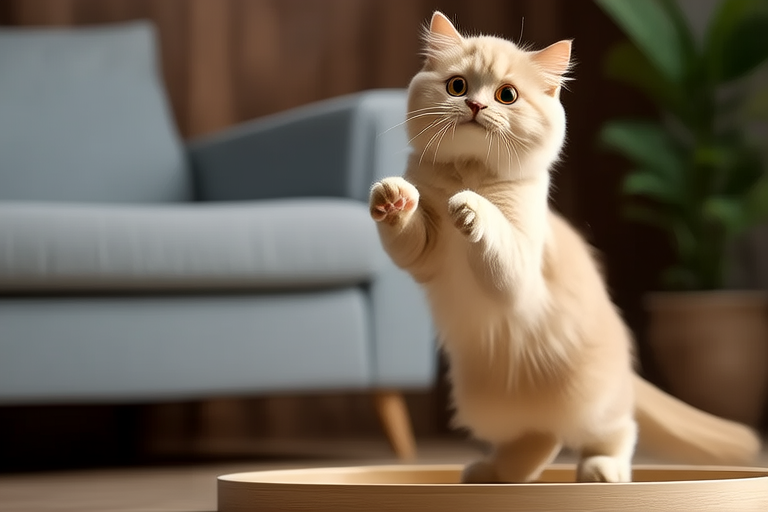Tiny Steps, Big Heart: Raising a Happy and Healthy Munchkin Cat
Welcome to the world of Munchkin cats! These adorable felines, known for their short legs, have captured the hearts of many cat enthusiasts. Whether you’re a first-time owner or an experienced cat lover, raising a Munchkin cat can be a rewarding experience. This article will guide you through the essential tips to ensure your Munchkin cat lives a happy and healthy life.
Understanding the Unique Physical Traits of Munchkin Cats
Munchkin cats are best known for their unusually short legs. This trait is caused by a genetic mutation that affects the spine and leg bones. Despite their short stature, Munchkin cats are generally healthy and active. Their bodies are well-balanced, with a sturdy build and large, expressive eyes. Understanding these physical traits is crucial for providing the right care and ensuring your Munchkin cat thrives.
Exercise Needs
While Munchkin cats may appear less agile due to their shorter legs, they still require regular exercise to maintain their physical and mental well-being. Interactive play sessions with toys like feather wands or laser pointers can help stimulate them mentally and physically. Providing climbing structures or tunnels can also encourage exploration and movement. Remember, each Munchkin cat has its own energy level, so it’s important to observe your pet and adjust the exercise routine accordingly.
Dietary Considerations
A balanced diet is essential for maintaining a Munchkin cat’s health. High-quality cat food that meets their nutritional needs should be the foundation of their diet. Consult with your veterinarian to determine the appropriate amount and type of food for your Munchkin cat based on age, weight, and activity level. Fresh water should always be available. Avoid overfeeding, as obesity can lead to health problems such as diabetes or joint issues. Treats should be given sparingly and only as rewards during training or special occasions.
Common Health Issues
Despite their overall good health, Munchkin cats are prone to certain health conditions. One of the most common issues is spinal deformities, which can cause discomfort or pain. Regular check-ups with a veterinarian can help detect and address any potential problems early. Additionally, Munchkin cats may be susceptible to respiratory infections due to their flattened facial structure. Maintaining a clean living environment and avoiding exposure to sick animals can help prevent these infections. Early detection and treatment of any health issues are key to ensuring your Munchkin cat stays healthy.
Creating a Stimulating Environment
A stimulating environment is vital for a Munchkin cat’s happiness and well-being. Provide a variety of toys, scratching posts, and climbing structures to keep them entertained. A scratching post not only helps with claw maintenance but also provides a place for your cat to stretch and mark territory. Interactive toys that encourage problem-solving can also engage their minds. Creating different levels in your home, such as elevated perches or platforms, allows your Munchkin cat to explore and feel secure. Rotate toys periodically to keep things interesting and prevent boredom.
The Importance of Regular Vet Care
Scheduling regular veterinary check-ups is crucial for the health of your Munchkin cat. Annual wellness exams allow veterinarians to monitor your cat’s overall health and catch any potential issues early. Vaccinations and preventive treatments for parasites should also be kept up-to-date. In addition to routine visits, it’s important to consult with your veterinarian if you notice any changes in your cat’s behavior, appetite, or appearance. Early intervention can make a significant difference in managing health concerns.
Socialization and Bonding Activities
Socializing your Munchkin cat from a young age helps them become comfortable around people and other animals. Introduce them to various environments and experiences gradually to build confidence. Positive reinforcement techniques, such as clicker training or treats, can be used to encourage desired behaviors. Spending quality time with your cat through play, grooming, or simply sitting together can strengthen your bond. This connection not only enriches your relationship but also contributes to your Munchkin cat’s emotional well-being.
Conclusion
Raising a happy and healthy Munchkin cat involves understanding their unique physical traits, meeting their exercise and dietary needs, addressing common health issues, and creating a stimulating environment. By prioritizing regular vet care, socialization, and bonding activities, you can ensure your Munchkin cat enjoys a fulfilling and joyful life. With love, patience, and attention, you’ll have a wonderful companion who will bring endless joy to your home.
